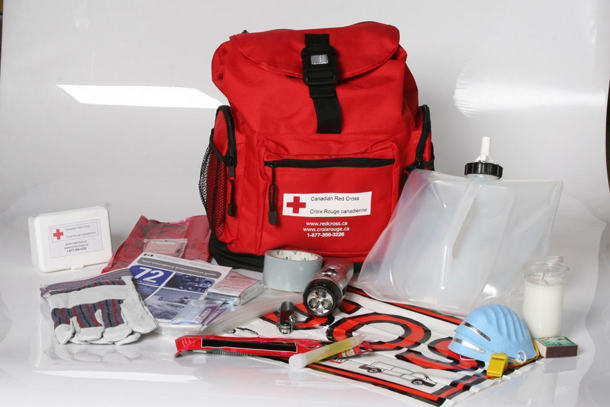
THUNDER BAY – Weather – Winter storms and preparing for them are quite common in Northwestern Ontario. Winter this year seems determined to hang on.
Getting ready for a storm means no matter what, you are able to get through. While the last two storms have missed Thunder Bay, having a home and vehicle safety kit is a good idea you can use no matter what.
A Major spring/winter storm is headed to Thunder Bay.
While it might sound dramatic, having the needed supplies on hand before the storm hits is always a good idea. Having the vehicle fueled, gas for the snow blower, having extra food, batteries and supplies on hand is simply good common sense, regardless of the season.
The Canadian Red Cross has this list of suggested supplies:
- Water—at least a 3-day supply; one gallon per person per day
- Food—at least a 3-day supply of non-perishable, easy-to-prepare food
- Flashlight
- Battery-powered or hand-crank radio (NOAA Weather Radio, if possible)
- Extra batteries
- First aid kit
- Medications (7-day supply) and medical items (hearing aids with extra batteries, glasses, contact lenses, syringes, etc.)
- Multi-purpose tool
- Sanitation and personal hygiene items
- Copies of personal documents (medication list and pertinent medical information, proof of address, deed/lease to home, passports, birth certificates, insurance policies)
- Cell phone with chargers
- Family and emergency contact information
- Extra cash
- Baby supplies (bottles, formula, baby food, diapers)
- Pet supplies (collar, leash, ID, food, carrier, bowl)
- Tools/supplies for securing your home
- Sand, rock salt or non-clumping kitty litter to make walkways and steps less slippery
- Warm coats, gloves or mittens, hats, boots and extra blankets and warm clothing for all household members
- Ample alternate heating methods such as fireplaces or wood- or coal-burning stoves
One of the keys in any winter or snowfall event is the post storm clearing of snow.
Snow clearing is hard on the heart.
The City of New York offers these safety tips:
Snow Removal Safety Tips
- Stretch before you go out. If you go out to shovel snow, do a few stretching exercises to warm up your body. This may prevent injury.
- Cover your mouth. Protect your lungs from extremely cold air by covering your mouth when outdoors.
- Avoid overexertion. Cold weather puts an added strain on the heart. Unfamiliar exercise, such as shoveling snow or pushing a car, can bring on a heart attack or make other medical conditions worse. Take frequent rest breaks, and drink plenty of fluids to avoid dehydration.
- Keep dry. Change wet clothes frequently to prevent a loss of body heat. Wet clothing loses all of its insulating value and transmits heat rapidly.
- Stay safe. Walk carefully on snowy or icy sidewalks. If using a snowblower, NEVER use your hands to unclog the machine.
- Maintain an awareness of utilities when shoveling snow. Do not cover fire hydrants with snow when clearing sidewalks and driveways. Do not shovel snow into manholes and catch basins.
- Offer to help individuals who require special assistance, including seniors and people with disabilities.










